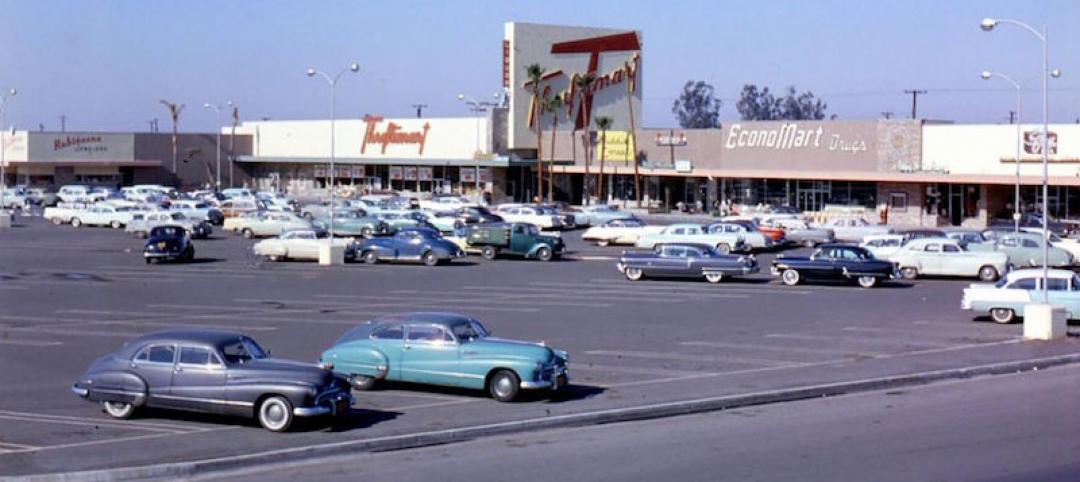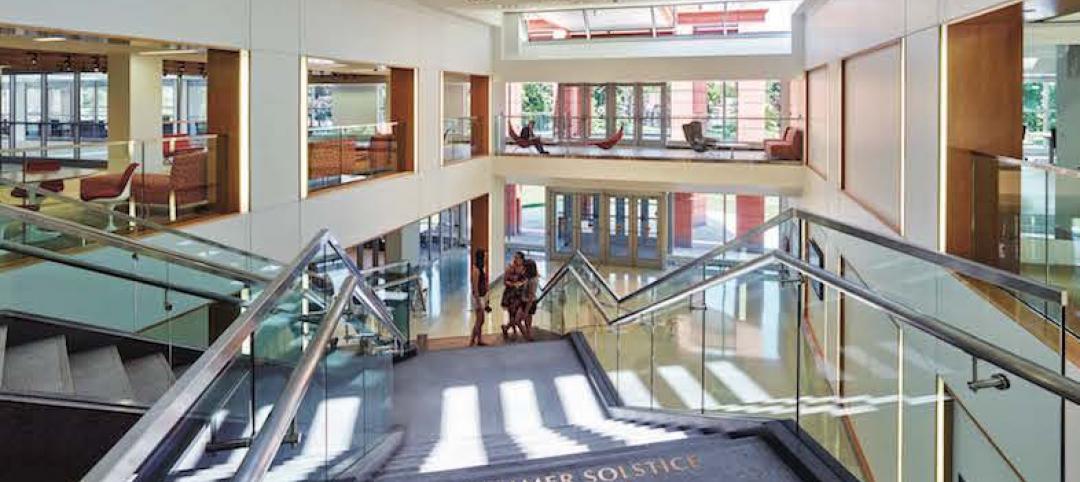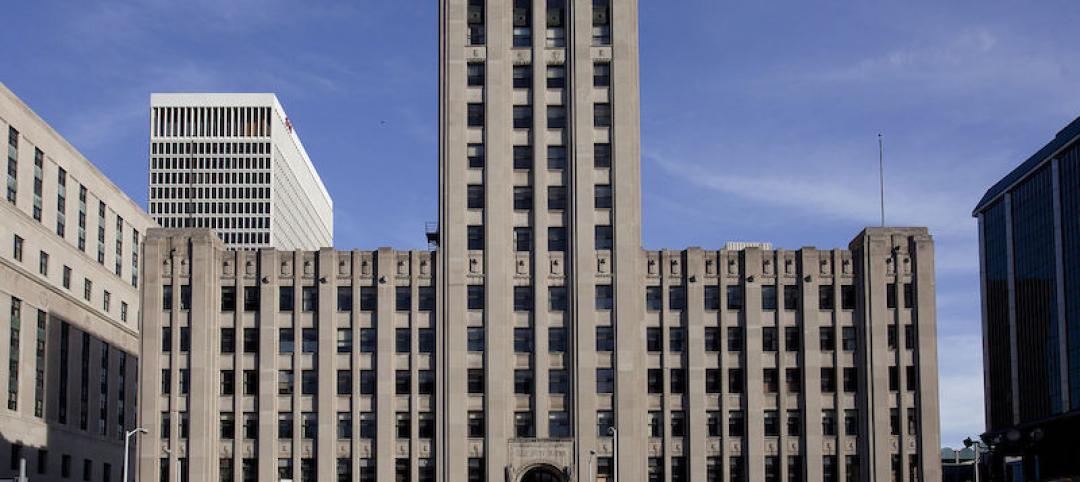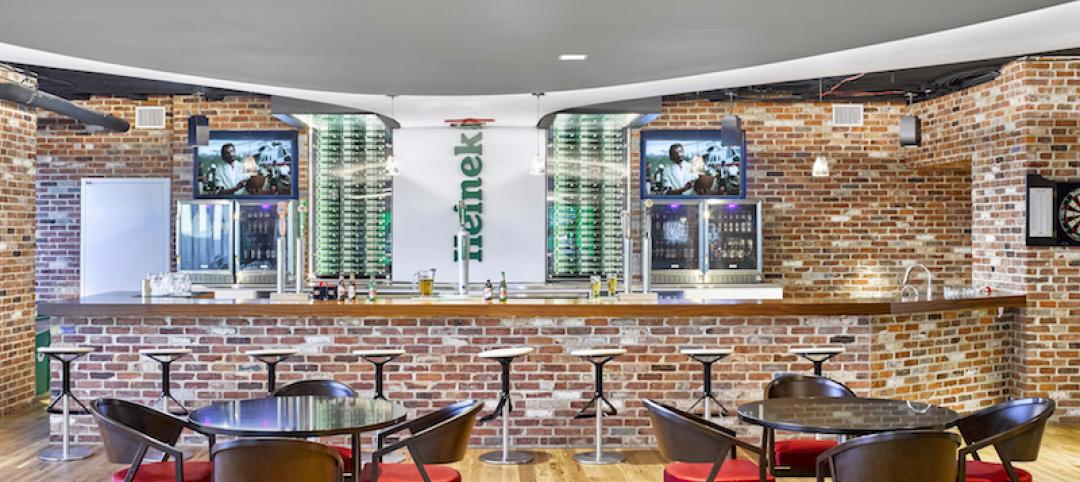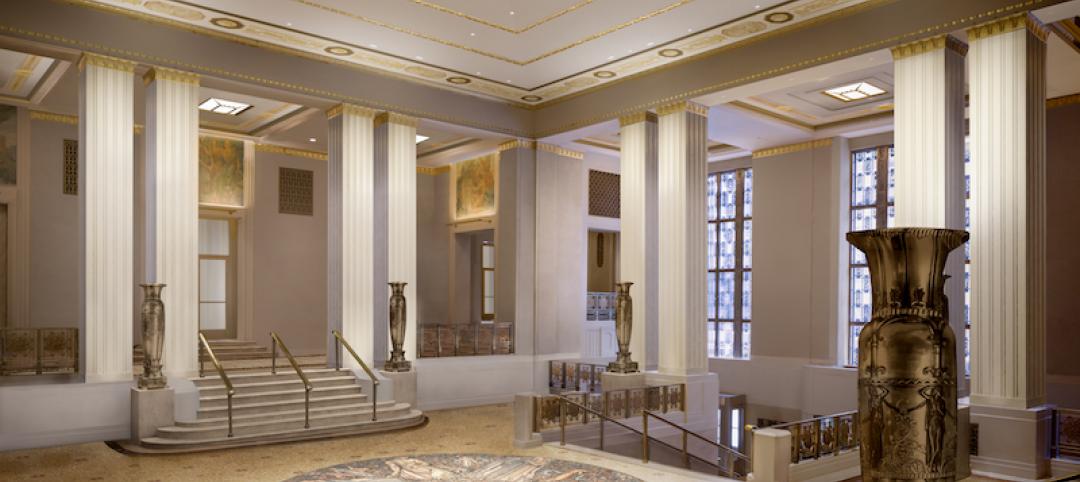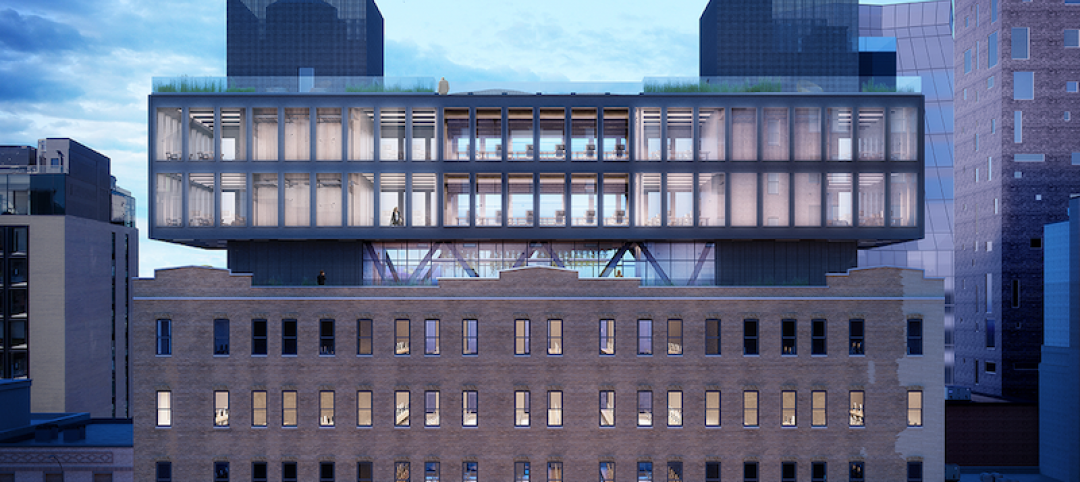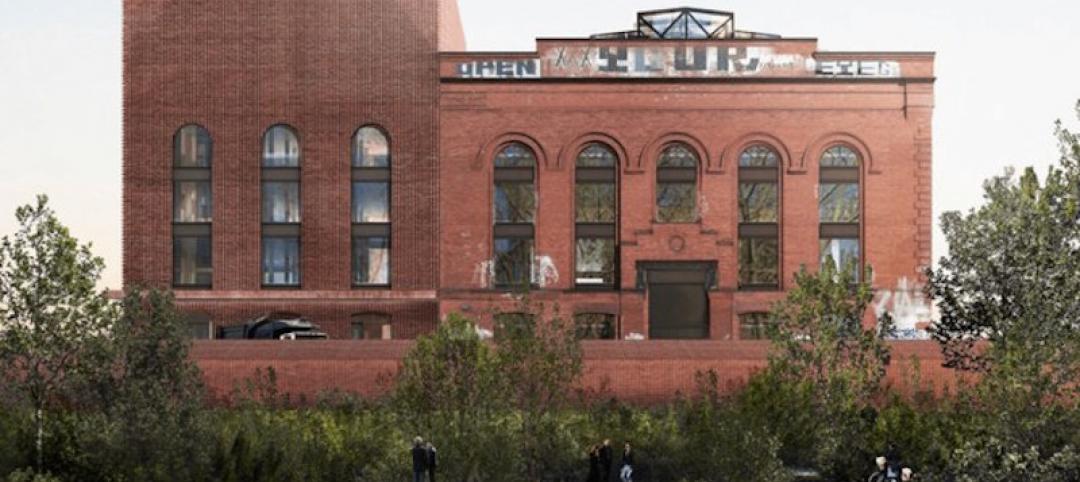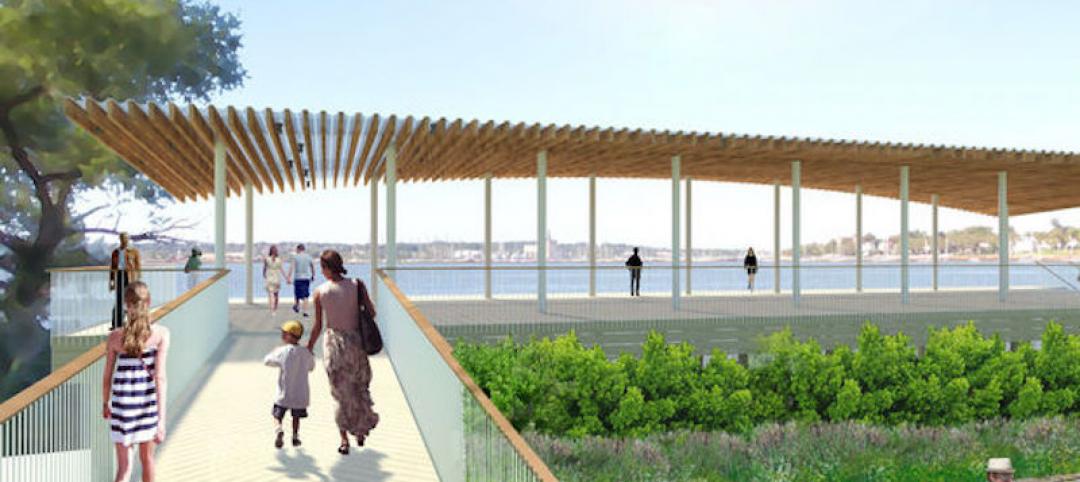Ameresco, a Massachusetts-based cleantech integrator and renewable energy owner and operator, has been working with the City of Boulder, Colo., on the company’s first sustainable deconstruction project, a demolition of the municipality’s former Boulder Community Health Hospital, which had been closed since April 2019.
Boulder has set a target to divert 85 percent of the city’s waste away from landfills by 2025. The former hospital’s deconstructed building materials, and specifically its structural steel, will be used to construct a new fire station and other projects within the city. The firehouse, to be located at 30th and Valmont in Boulder, is scheduled to open in mid-2024. During an early deconstruction phase, the hospital’s pumps, motors, doors, and fixtures, as well as other materials, were auctioned rather than dumped into landfills.
The 250,000-sf hospital’s demolition occurred in two phases, says Rob Sevier, Ameresco’s Senior Account Executive in Denver: the interior demo began in 2019, was slowed because of COVID, and was completed last year. The exterior demo—which includes removing the hospital’s concrete floors, steel, and exteriors—required new permits before it was started last March. Sevier says the deconstruction should be completed sometime this fall.
“This deconstruction project is an important foundational example of innovative sustainability for the communities where we live and work,” said Louis Maltezos, Ameresco’s Executive Vice President, in a prepared statement. Based in Chicago, Maltezos oversees the company’s activities in the central U.S. and in Canada.
The cost of the demolition, and how much of that cost is expected to be recouped by reusing or reselling materials and equipment from the deconstruction, were not available at presstime, according to an Ameresco spokesperson.
Mandate calls for dramatic reuse
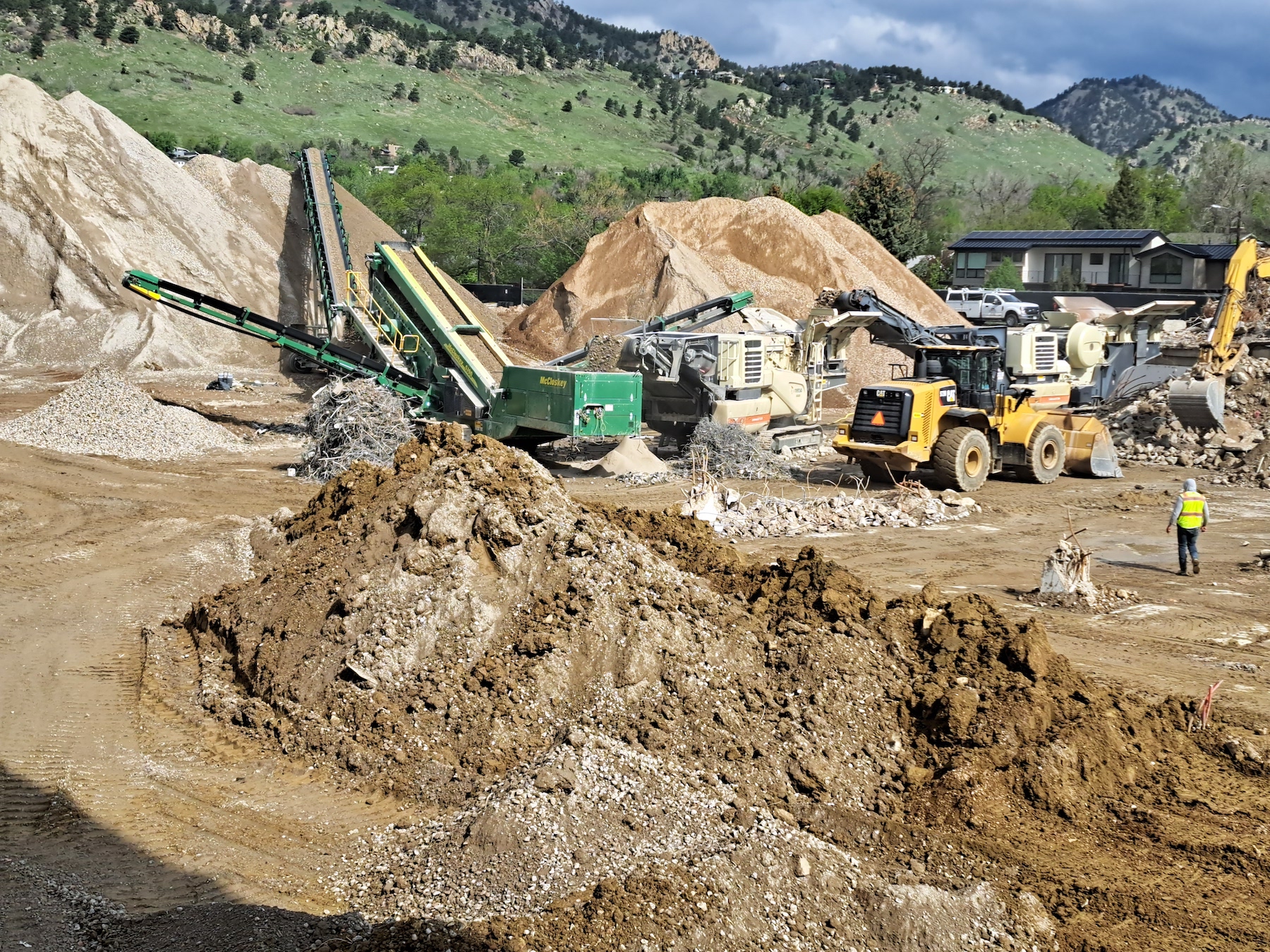
In July 2020, Boulder passed a deconstruction ordinance that covers both residential and commercial properties and requires that at least 75 percent by weight of building materials generated from deconstruction must be recycled, reused or go for organics management. Demolition permits now also require a refundable deconstruction deposit of $1 per sf of the structure, with a $1,500 minimum.
Concerning the hospital demo project, Mike White, who works for Ameresco in Boulder, told Aspen Public Radio that “this project is all about reusing, and that’s the key word, reuse versus recycle.”
He said the building’s mortar, brick and concrete are getting crushed into construction grade, compacted, and reused to fill the hole left by the hospital demo. (The site is being redeveloped for affordable housing.) Right now, steel removed from the hospital is being stored onsite, but Sevier says Ameresco and the city will need to find a warehouse once the housing construction gets underway. “It’s also my understanding that Boulder wants to use this steel for other projects,” he says.
The hospital deconstruction contributes to the city’s Circular Boulder program that keeps materials out of landfills and in use as much as possible. “This growing area of work moves beyond recycling and composting to focus on preventing waste and pollution in the first place. It explores innovative ways to curb Boulder’s collective consumption through reuse and repair.”
Along with its waste reduction goals, Boulder is also striving for carbon neutrality by 2035.
Sevier says that reusing the hospital’s steel required having a structural engineer sign off on the materials’ integrity. There was also an extensive permitting process, and safety plans that included asbestos remediation. But that effort was worth it, he says, because “when we can reuse something, we’re also avoiding the impact of generating something new.”
Ameresco isn’t actively looking for other sustainable deconstruction opportunities. The company has had a longstanding business relationship with the City of Boulder, which Sevier points out is more environmentally progressive than most other metros. But the company’s M.O., says its director of marketing and public relations Rhea Hickok, “is to do what makes sense for our customers.” In the future, that is likely to mean “how sustainability fits in,” she says.
Related Stories
Airports | Jun 26, 2017
Newark Liberty International Airport breaks ground on $2.4 billion redevelopment project
The project includes a new 1 million-sf terminal building with 33 domestic aircraft gates.
Retail Centers | Jun 21, 2017
Creating communities from defunct malls
It’s time to plan for the suburban retail reset—and it starts by rethinking the traditional mall.
Reconstruction & Renovation | May 30, 2017
Achieving deep energy retrofits in historic and modern-era buildings [AIA course]
Success in retrofit projects requires an entirely different mindset than in new construction, writes Randolph Croxton, FAIA, LEED AP, President of Croxton Collaborative Architects.
Reconstruction & Renovation | Apr 27, 2017
One of the last abandoned high-rises in Detroit’s downtown core moves one step closer to renovation
Kraemer Design has been selected as the architect of record and historic consultant on the Detroit Free Press building renovations.
Office Buildings | Apr 18, 2017
Heineken USA Headquarters redesign emphasizes employee interaction
An open plan with social hubs maximizes co-working and engagement.
Reconstruction & Renovation | Mar 30, 2017
Waldorf Astoria New York to undergo massive renovation
Skidmore, Owings & Merrill and Pierre-Yves Rochon prepared the designs for what will be one of the most complex and intensive landmark preservation efforts in New York City history.
Office Buildings | Mar 27, 2017
New York warehouse to become an office mixing industrial and modern aesthetics
The building is located in West Chelsea between the High Line and West Street.
Reconstruction & Renovation | Mar 16, 2017
Pols are ready to spend $1T on rebuilding America’s infrastructure. But who will pick which projects benefit?
The accounting and consulting firm PwC offers the industrial sector a five-step approach to getting more involved in this process.
Reconstruction & Renovation | Mar 16, 2017
Brooklyn’s ‘Batcave’ will become a series of fabrication shops
The century-old building will be turned into fabrication shops in wood, metal, ceramics, textiles, and printmaking.
Reconstruction & Renovation | Feb 16, 2017
Stalled Conference House Park pavilion renovation moving forward
The pavilion has been awaiting repair since storm damage in 2011 rendered the structure unsafe for the public.



